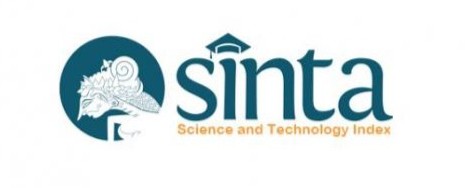PEREMPUAN DALAM NOVEL DAKWAH: KAJIAN KARYA ASMA NADIA DALAM PERSPEKTIF HALL
Downloads
Abstrak: Artikel ini berfokus pada bagaimana karakter-karakter perempuan ditampilkan di dalam novel dakwah karya Asma Nadia untuk mengkaji eksistensi pengarang dan karyanya dalam ranah kultural dan agama. Fokus artikel ini adalah 1) bagaimana tokoh perempuan direpresentasikan di dalam novel Assalamualaikum Beijing dan Surga Yang Tak Dirindukan, 2) apa makna yang ditandai dengan posisi tokoh perempuan di dalam novel Assalamualaikum Beijing dan Surga Yang Tak Dirindukan. Artikel ini menggunakan teori representasi Stuart Hall dan menunjukkan bahwa terlepas dari semangat kesetaraan gender yang digemakan Forum Lingkar Pena, perempuan masih direpresentasikan dengan karakter-karakter nilai patriarki dan itu berarti makna nilai liberation dan equality yang dipegang oleh Asma Nadia masih berlandaskan tafsir klasik atas teks-teks suci agama Islam. Dengan begitu, nilai persamaan yang dimaksudkan menjadi semangat karya-karyanya, tidak tercermin dalam ranah mikro di dalam Narasi yang dibangun Asma Nadia.
Kata-kata Kunci: Asma Nadia, Novel Dakwah, Forum Lingkar Pena, Stuart Hall, Representasi
Abstract:This article focuses on how female characters are featured in Asma Nadia's da'wah novels to study the existence of author and her works in the cultural and religious realm. The focus of this article is 1) how the female character is represented in the novel Assalamualaikum of Beijing and the Surga Yang Tak Dirindukan, 2) what is the significance marked by the position of female characters in the novel Assalamualaikum Beijing and Surga Yang Tak Dirindukan. This article uses Stuart Hall's theory of representation and shows that apart from the spirit of gender equality echoed by the Pen Circle Forum, women are still represented by patriarchal characters and that means the value of liberation and equality held by Asma Nadia is still based on the classical interpretation of Islamic sacred texts. That way, the value of the equation which is meant to be the spirit of the Asma Nadia's works, is not reflected in the micro-realm within the Narration built by Asma Nadia.
Keywords: Asma Nadia, Da'wah Novels, Forum Lingkar Pena, Stuart Hall, Representation
Arnez, M. (2009). Dakwah By The Pen: Reading Helvy Tiana Rosa's Bukavu. Indonesia and The Malay World Journal, 45-65.
Arnez, M. (2010). Empowering Women Through islam: Fatayat NU Between Tradition And Change. Journal Of Islamic Studies, 59-88.
Arnez, M. (2016). Dimensions of Morality: The Transnational Writers' Collective Forum Lingkar Pena. Bijdragen tot de Taal, 449–478.
Arnez, M., & Dewojati, C. (2010). Sexuality, Morality and The Female Role : Observation On Recent Indonesian's Women's Literature. Ein Dienst der ETH-Bibliothek.
Azwar. (2012). Fiksimorfosis Forum Lingkar Pena: Dari Ideologi Ke Industri. Magister Ilmu Komunikasi Universitas Indonesia.
Bhasin, K. (1996). Menggugat Patriarki: Pengantar Tentang Persoalan Dominasi Terhadap Perempuan. Jogjakarta: Yayasan Bentang Budaya.
Bidayah, A. (2013). Riffat Hasan Dan Wacana Baru Penafsiran. Kalimah Volume 11, 305-321.
Ch, M. (20101). Gender Di Pesantren Salaf: Why Not? Malang: UIN-MALIKI Press.
El Saadawi, N. (2001). Perempuan Dalam Budaya Patriarki. Jogjakarta: Pustaka Pelajar.
Hall, S. (1997). Representation: Cultural Representations and Signifying Practices. London: SAGE.
Manshur, A. Q. (2012). Fikih Wanita: Segala Hal Tentang Wanita Dalam Islam. Jakarta: Zaman.
Muhammad, H. (2004). Islam Agama Ramah Perempuan: Pembelaan Kiai Pesantren. Jogjakarta: LKiS.
Tong, R. P. (2010). Feminist Thought: Pengantar Paling Komprehensif Kepada Aliran Utama Pemikiran Feminis. Jogjakarta: Jalasutra.
Wadud, A. (1999). Qur'an And Woman: Rereading The Sacred Text From A Woman's Perspective. Oxford: Oxford University Press.

LAKON by Unair is licensed under a Creative Commons Attribution-NonCommercial-ShareAlike 4.0 International License.
1. The journal allows the author to hold the copyright of the article without restrictions.
2. The journal allows the author(s) to retain publishing rights without restrictions
3. The legal formal aspect of journal publication accessibility refers to Creative Commons Attribution-NonCommercial-ShareAlike (CC BY-NC-SA).


.png)













